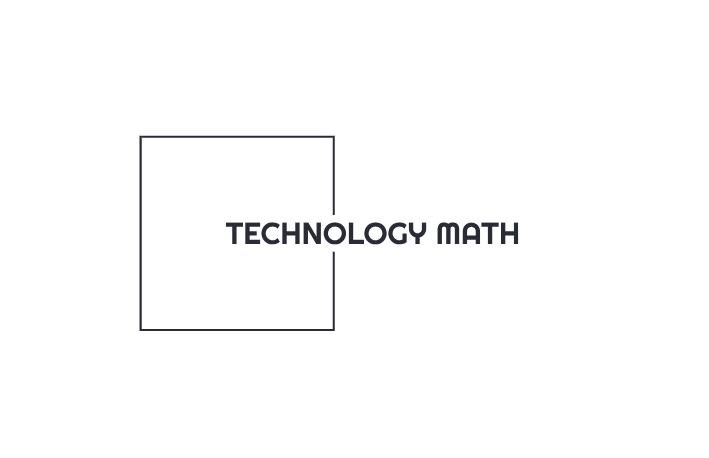
Driven by the surge in sustainable farming practices, the agriculture industry is adopting emerging technologies, leading towards innovation. Serving as a key driver in this vision, legacy software modernization services have proven to be a game-changer for modern agriculture-based companies.
Focusing on resource efficiency, supply chain management, and cost effectiveness, smart farming is the new term coined for this evolving growth. This incorporates the power-packed capabilities of modern technologies like artificial intelligence, among others, to deliver exceptional results to agricompanies.
Delving into these interesting prospects, let’s examine the industry overview, benefits of business modernization, and its risks & challenges. Additionally, the blog examines the latest technologies in agri tech & their impact on the overall aspects of the industry.
Industry Overview for Agriculture Business Modernization Services
We understand that growth is always an outcome of a transformational mindset and strategic implementation of plans put together as one.
In the context of agri-tech, this signifies redefining the traditional business models of agriculture and farming through leveraging the technologies of artificial intelligence and IoT, precision farming, robotics, and others. Moreover, owing to these latest developments, the industry has expanded the scope of its operations significantly. These include innovative techniques for predictive yield analysis, real-time monitoring of livestock and weather updates, and even the inclusion of robotics in harvesting.
Such a phenomenal change in techniques has also attracted startups to venture into the agri-tech industry. Moreover, research shows that this global industry will mark a projected spike of 15.3% CAGR from 2025 to 2034. Leading this change, some of the growing global companies in agriculture technology, namely John Deere and AGRO Corporation, among others, are also focusing on precision agriculture, sustainable food production, and autonomous technologies.
Benefits of Legacy Software Modernization Services in Agri Tech
Considering the journey of transformation of agro businesses from old softwares to future technologies, the industry has achieved an improved level of efficiency and performance. In this light, let’s understand the advantages of incorporating legacy software modernization in the agri-tech industry.
1. Integration of AI in Agricultural Operations
Artificial intelligence is a driving transformational force that has been adopted by conglomerates to improve their operations and services. To understand the essence of this integration, let’s study the following industry case.
A reputed company, John Deere, developed See & Spray technology in the domain of precision agriculture. This state-of-the-art innovation utilizes computer vision and ML in the process of identifying and targeting weeds in food production. As a result, it has helped in enhancing workflow efficiency and saving time.
2. Efficient Utilization of Resources
As a catalyst for change, legacy software modernization services have worked on providing real-time data insights on resource allocation to agricultural companies. These insights include soil map, weather, and crop health-related updates.
Mainly, it is focused on the optimal usage of resources like water, pesticides, fertilizers, and land for food production. Additionally, it also assisted in evaluating the cost sheet of the companies to ensure optimization and efficiency.
3. Improved Logistics
The evolving blockchain technologies, like Ethereum, which are part of the modernization services, ensure transparency in food production and tracking of the produce from farm to market. This directly yields benefits for the agribusinesses and end-customers.
As a result of this technology adoption, companies can ensure food safety throughout the distribution network. Moreover, customers also have a better insight regarding the quality of the yield produced, allowing them to make informed decisions.
Evolving Risks in Agriculture Technology Mitigated by Business Modernization Services
Considering the risk element is important for start-ups and companies, as this foresight helps them in developing suitable mitigation strategies. Moving forward, you can get a baseline overview of some of the risks associated with Agro businesses, which are as follows:
-
Climate Change
The element of uncertainty has been prevalent in agriculture for centuries. It includes environmental aspects like:
- Changes in weather patterns,
- Likelihood of natural disasters, and
- The impact of greenhouse gas emissions on crop yield production.
These need to be carefully evaluated and mitigated through leveraging technologies like AI, ML, and NLP that facilitate securing crop yield production. Hence, it is recommended that you hire an expert business modernization services provider specialized in agri-tech. They will be proficient in assisting your company and building apt mitigation strategies around these concerns.
-
Regulatory Challenges
This includes many compliances that are significant to be adhered to by the agriculture companies. Some of them are discussed as follows:
- Data Privacy and Protection: Aligning with the regulations of GDPR for data privacy and protection is necessary to ensure the protection of sensitive data.
- Food Safety: This is a significant concern for businesses and end-customers. Hence, compliance with federal institutions like the Food and Drug Administration (FDA), i.e., associated with the Food Safety Modernization Act, among others, will be necessary.
- Other International Institutional bodies of Regulation: These include the World Economic Forum, which provides stringent legal policies to protect farmer data, also promoting ethical data collection and storage measures. Additionally, CropLife International is a global federal body providing a regulatory framework to promote sustainable agriculture practices.
Emerging Technologies for Legacy Transformation and Their Impact on Agriculture Businesses
Emerging technologies implemented by proficient business transformation services can provide sound & competitive solutions to businesses. Hence, let’s explore some of these technologies that are gaining momentum in the context of agro-tech businesses.
a) Artificial Intelligence
They mainly assist in functionalities like predictive crop yield production, pest detection, and monitoring the soil health to ensure better produce. Furthermore, artificial intelligence helps agriculture companies optimize resource management.
One such industry example is leveraging CropIn’s Smart Farm platform to provide actionable inputs on water and nutrients utilized in agriculture. This data analytics-based solution also aims to increase the profitability of farmers by reducing their resource costs.
b) IoT Technologies
This modern technology has been engineered to track the real-time updates for livestock, weather conditions, and soil moisture conditions. In this context, IBM Food Trust is a commendable IoT technology implemented to ensure a better food supply chain for companies like Walmart.
c) Aerial Imaging
The technology update by John Deere’s See & Spray technology, discussed earlier, is an incredible example of how aerial imaging can transform the methods of weed removal. These offer high-resolution, clear images of production to monitor crop health and soil conditions in real-time. Moreover, it also adds value to the modern techniques of precision spraying used in farming.
d) Machine Learning
Machine Learning is fruitful for various aspects in agriculture businesses, including demand forecasting, pest identification, and much more. Sharing an example for the same, Plantix (developed by PEAT, a German startup) is an ML-based application that helps recognize and cure plant diseases. This latest technology assists in providing a mechanism for advanced pest support to the farmers and agri businesses.
e) Low-code and No-code platforms for Agro Tech Businesses
Many start-ups also invest in utilizing LCNC platforms to develop simpler agriculture-based digital solutions. Some of these include AgWise, FarmBot, and others.
Thus, the impact of these well-developed technologies in agricultural businesses is phenomenal. These emphasize high-quality crop production, which can be accurately predicted and tracked through the discussed modern technologies. Moreover, the ideation of smart farming and sustainable digital solutions in agri tech is a branch of budding research on its own.
Conclusion
Hence, supported by the latest technologies, the road of transformation in agri tech is leading to incredible changes in food production and its logistics.
Earlier rooted in traditional methodologies like agroforestry and cultivation, agriculture has now transformed towards adopting a modernization approach. Thus, significantly owing to the contribution of business transformation services, this industry is set to focus on delivering sustainable agriculture solutions.






